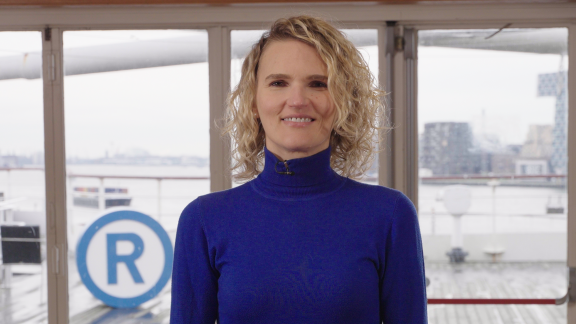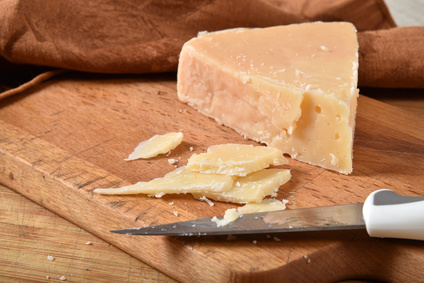 EU regional products, such as agricultural products, food and wine, reflect the various traditions and regions of Europe. There are many regional products and at least as much information available on them.
EU regional products, such as agricultural products, food and wine, reflect the various traditions and regions of Europe. There are many regional products and at least as much information available on them.
Clear information about the origin of products is important for consumers as it informs their choices. Equally, adding value to a product and protecting consumers from imitation goods is important for businesses. For these reasons, the EU has set up a registration system to protect regional products. There are three types of European protection: Protected Designation of Origin (PDO), Protected Geographical Indication (PGI) and Guaranteed Traditional Specialty (TSG).
How does it work?
By means of quality labels, the EU registration system monitors and protects certain regional products. To obtain the protection of a quality label, you must register the designation of the regional product with the competent national authority. A quality label is granted to regional products, the excellent quality and reputation of which are closely linked to the geographical area where they are produced and/or processed.
Once the geographical designation has been registered, it is protected against unauthorised use and practices that may mislead consumers.
Under certain circumstances, the owner of a protected geographical indication can file an opposition against an earlier trademark or apply for cancellation of a registered trademark. Furthermore, BOIP may refuse a trademark application on the ground that it is pre-dated by a protected geographical indication.
What quality labels are there?
The EU has three different quality labels, each associated with a logo. These logos can be used to show that the product has a protected status. The labels serve to inform the consumer clearly about the specific character of the regional product and to protect it from imitation. In addition, they help ensure fair commercial transactions.
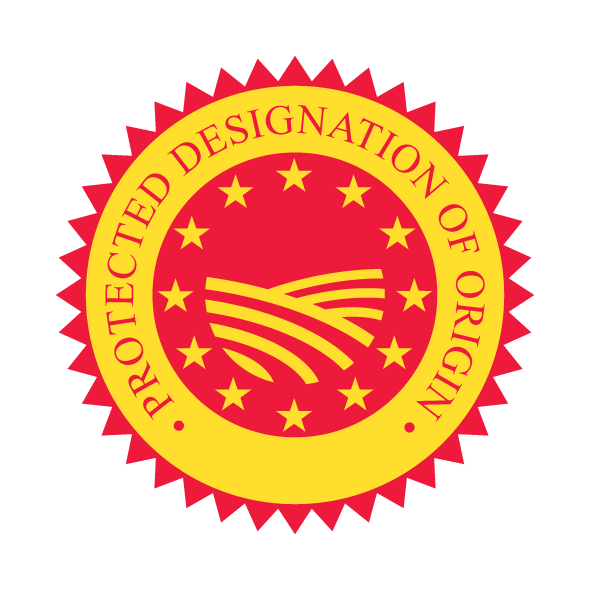 Protected Designation of Origin
Protected Designation of Origin
The European Commission grants a Protected Designation of Origin (PDO) to regional products originating in a given region, provided that the quality or other characteristics of the product are essentially attributable to the particular geographical environment of the place of origin. The geographical environment encompasses natural and human factors, such as climate, soil conditions, topography, local know-how, etc. Products bearing this label must be produced, processed and prepared in a certain geographical area using a recognised and controlled method, for example cheeses made in a certain area from the milk of a local animal breed reared in that geographical area.
Examples: Gorgonzola (cheese), Prosciutto di Parma (ham).
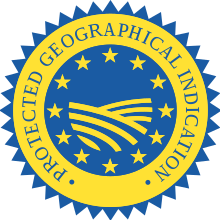 Protected Geographical Indication
Protected Geographical Indication
The European Commission grants a Protected Geographical Indication (PGI) to regional products originating in a certain region, provided that the quality, reputation or other characteristics of of the product can be attributed to that geographical origin. The conditions for obtaining a PGI are more lenient than those for a PDO. It suffices that the product’s reputation lies in the fact that it originates in a particular region. Similarly, it is enough for it only to be produced or processed or prepared in that region, not all three. The link between the product and its geographical origin is thus weaker than in the case of a PDO. For example, a PDO might apply to hams and sausages that enjoy a certain renown and are prepared using local methods within a defined geographical area.
Examples: Brussels grondwitloof (chicory heads), Jambon d'Ardenne (ham), Westland druif (table grapes)
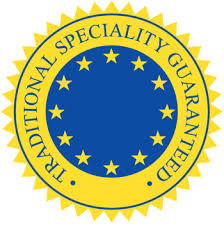 Guaranteed Traditional Specialty
Guaranteed Traditional Specialty
A product does not become a Guaranteed Traditional Specialty (GTS) owing to its origin, but rather because of the link between the quality of the product and a traditional recipe or production method. The product is considered to be 'traditional' because it has demonstrably been sold, unchanged, on the EU market for at least 30 years. Recognition as a GTS can only be requested for food and agricultural products, not for wines, and requires that the product has characteristic features that clearly differentiate it from other foods and agricultural products in the same category. Certain cheeses or specialities prepared in a traditional way, for example, might qualify.
Examples: Mozzarella (cheese), Kriek (beer), Hollandse Maatjes/Hollandse Nieuwe (herring)
Importance of geographical indication protection
- It is in the consumers’ interest to be correctly and fully informed about the quality aspects of products, so that they can weigh those considerations in their purchasing decisions.
- Providing correct and complete information is also important for producers. It is a way for them to differentiate their products from similar products which originate elsewhere. The protection is intended to safeguard producers' income and to provide clear information to consumers about the added value of the products.
How do I register a designation?
To register a designation, you submit a file of information on your product that specifies the conditions under which the protected label may be used (geographical delineation, requisite production method, proof of the link between the product’s qualities and a geographical environment, etc.).
The application must be submitted by a national group of producers or processors of the product (e.g. an agricultural organisation). Quality labels (PDO, PGI and GTS) are intended for use by a collective group and not exclusively by a single person or organisation.
Those producers or processors who meet the conditions set out in the product specification have the right to use the protected name and the relevant quality logo(s).
Designations in the Benelux
Belgium
Further information can be found on the FPS Economy, Intellectual Property Office website.
The Netherlands
Further information can be found on the Netherlands Enterprise Agency (RVO) website.
Luxembourg
More information can be found on the website of the Gouvernement du Grand-Duché de Luxembourg.
Do you want advice?
BOIP is an independent body. We are therefore not permitted to give you personal advice. An external IP professional can, however, advise you on the best protection for your regional product.



